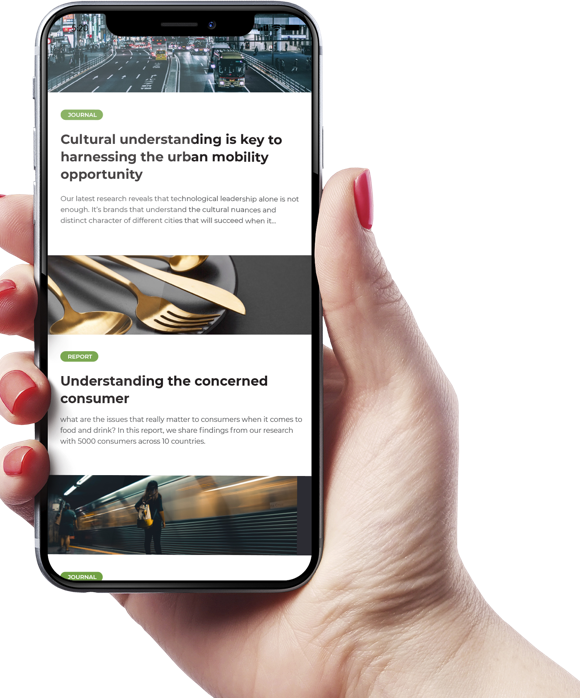Market research in Japanhas been transformed by the emergence of online research. While other Asian markets continue to favour more personal, face-to-face techniques, Japanese culture is perfectly suited to this more arms-length approach, especially when it comes to researching conventional, mainstream audiences. Online research means that Japanese consumers don’t have to personally interact with researchers in person to complete surveys; a factor that circumvents a Japanese antipathy towards personal interactions with strangers. The idea of sharing personal information can make some Japanese consumers deeply uncomfortable and extends itself to a desire to avoid picking up phone calls from unknown numbers, which means telephone research in Japan is difficult to execute, too.
On the other hand, online research methods remove human interaction from the research process, encouraging participation from respondents who may not enjoy the process of a face to face interview or focus group. Respondents can relax without the pressures of sharing directly with another individual and are more likely to give honest and detailed responses when giving answers at their own leisure. Likewise, online research methods provide a sense of control to the respondent.

Unlike in a face-to-face interview, every question in an online survey is predetermined, and while this impacts the level of insight a researcher can reach, it provides a safer environment for respondents who are concerned that the spontaneity of a ‘live’ interview may lead them to revealing too much information, or at least a feeling of great social awkwardness.
Unlike in a face-to-face interview, every question in an online survey is predetermined, and while this impacts the level of insight a researcher can reach, it provides a safer environment for respondents who are concerned that the spontaneity of a ‘live’ interview may lead them to revealing too much information, or at least a feeling of great social awkwardness.
What’s more, Japanese infrastructure lends itself to online research. Commute times into Tokyo and other major cities like Osaka and Nagoya are typically an hour in duration, which means that many Japanese have at least 2 hours each day of ‘dead time’. And, with incentives provided to all who take part, online research is arguably one of the best ways to monetise this time. With high quality 3G and 4G networks in existence for years now, this has allowed online research to flourish during the commute.
Get regular insights
Keep up to date with the latest insights from our research as well as all our company news in our free monthly newsletter.

Although face-to-face research benefits researchers elsewhere, creating a personal relationship with respondents and opportunities for spontaneous questions that lead to deeper insights, these advantages are negated for researchers in Japan. The dominance of online research in Japan can be surprising to those less familiar with the country, but its capabilities to reach huge numbers of respondents quickly, cheaply and comfortably, mean that it is by far the best option for gaining accurate, primary quantitative data.
We at Kadence are big advocates of brands creating their own futures, rather than try to predict it. Earlier in the year, before the whole pandemic went global, we brought together trend watching experts from across our global boutique to identify four key trends that we believe will define the next 12 months, inspiring innovation across Asia, the US and Europe, that we outlined in this report.
How to conduct online market research in Asia: The Go-To Guide
Interested in understanding how to approach online research across other Asian countries? Download the guide here



 Senior Marketing Executive
Senior Marketing Executive Sales & Marketing
Sales & Marketing General Manager PR -Internal Communications & Government Affairs
General Manager PR -Internal Communications & Government Affairs Vital Strategies
Vital Strategies
 Customer Intelligence Director
Customer Intelligence Director